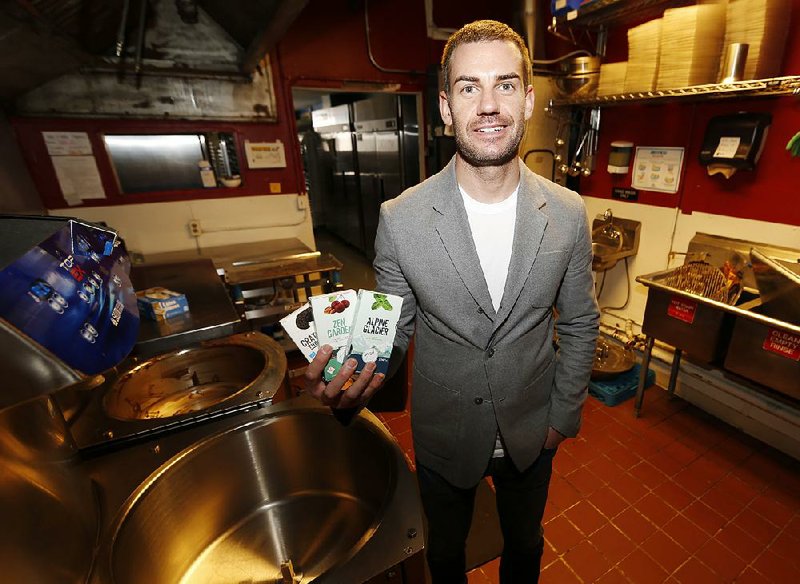DENVER -- A requirement that edible marijuana products come with a diamond-shaped stamp and the letters T-H-C -- not just on the packaging but on the brownies, candies and other edibles themselves -- takes effect today.
The rule referencing marijuana's psychoactive ingredient was added after complaints that the treats look too much their nonintoxicating counterparts. It is the first such requirement in any legal marijuana state.
Colorado's new "universal symbol" for foods that contain marijuana is designed to give the treats a distinct look even after they're out of the packaging. In other words, a marijuana cookie being passed around a high school cafeteria no longer will look so innocent, giving parents a way to identify marijuana edibles without smelling or tasting them.
The stamping requirement comes in addition to exhaustive labeling and packaging rules that include childproof zippers and lids, along with warnings that the product should be kept away from children and not eaten before driving or while pregnant or nursing.
"We want to ensure that people genuinely know the difference between a Duncan Hines brownie and a marijuana brownie, just by looking at it," said state Rep. Jonathan Singer, D-Longmont, who sponsored the law requiring stamped edibles.
There are no studies in Colorado or any marijuana state on how many children or adults accidentally eat "pot." But a 2016 study tracing admissions at Children's Hospital Colorado just outside Denver found that more children were treated for accidental marijuana ingestion after legalization, from 1.2 per 100,000 population two years before legalization to 2.3 per 100,000 population two years after legalization.
Marijuana ingestions remained relatively rare, though, with the hospital reporting 81 children treated for accidental ingestion between 2009 and 2015. Authors noted that "poor child supervision or product storage" was present in about a third of those cases.
Still, reported accidental ingestions caught lawmakers' attention. The law was passed more than a year ago but is just now taking effect because of difficulties implementing it. None of the other legal marijuana states has considered a universal symbol requirement for marijuana products themselves, as opposed to the packaging.
Candies and baked goods may be simple to stamp, but the label requirement gets a lot trickier for bulk items such as granola, or marijuana-infused sodas or powders that can be dissolved in water. The state ultimately settled on new packaging rules for those impossible-to-stamp items, requiring that sodas come in small single-serve bottles, for example.
Colorado also requires that edible packages contain the phrase, "Keep out of reach of children."
At BlueKudu, which makes marijuana-infused chocolates, owners had to buy new molds for a line of candy bars that include flavors such as mint chocolate, toffee almond and coffee crunch.
Company founder Andrew Schrot said that when he started his company in 2011 for medical marijuana customers, his treats looked like any other chocolate bars. But he said the switch to a recreational market in which new marijuana users were trying his products necessitated change.
"This is not your normal chocolate bar. There's something different about it. You can tell just from looking at it," Schrot said.
Colorado's marijuana industry initially was hesitant about the change, pointing out in regulatory meetings that alcohol-makers aren't required to dye their drinks funny colors to help keep them out of the hands of children.
"Some of the industry expectation was, 'Let's keep it on the parents and the users in keeping it away from children or people who shouldn't use it,'" Schrot said. "But you know, sometimes mistakes happen. You turn your back and a product is left out."
Colorado has no estimate of how many accidental ingestions might be avoided by the stamping. Starting next year, the state also will ban any edible marijuana products in the shape of a fruit, animal or human -- in addition to existing bans on the use of cartoon characters on packages or other images deemed attractive to children.
"It's really a step in enhancing public safety and making sure that marijuana is out of the hands of children," said Ron Kammerzell, head of enforcement for the state Marijuana Enforcement Division.
Business on 10/01/2016

